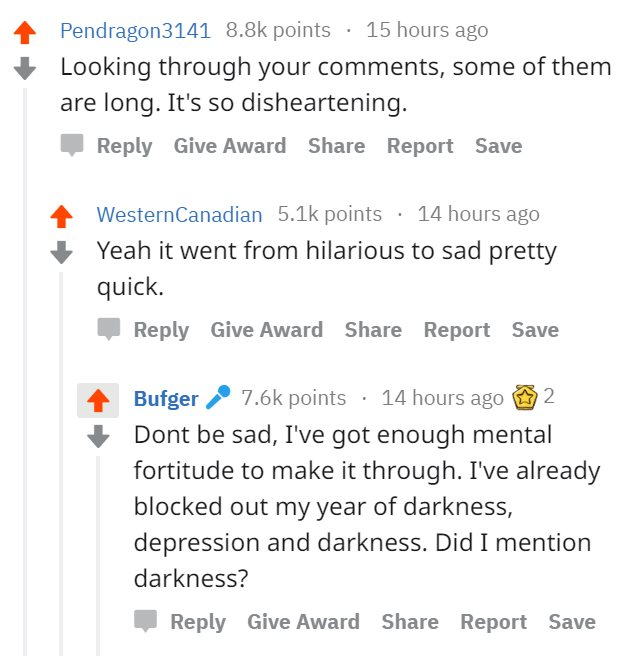Let's talk about something that might sound a little controversial but is actually super fascinating—Indian insults. Yep, you heard me right. While insults might seem like a negative thing, they often reflect deeper cultural and social dynamics. In India, where tradition meets modernity, insults can take on a whole new meaning. So, buckle up, because we're diving deep into the world of Indian insults, and trust me, it's gonna be an eye-opener.
Now, before you start thinking this is all about negativity, let's clarify something. Indian insults aren't always meant to harm. Sometimes, they're just playful banter between friends or family members. It's all about context, tone, and the relationship between the people involved. But hey, if you're new to this culture, it's good to know what's what so you don't accidentally offend someone or, worse, get offended yourself.
And here's the thing—India is a country with over 22 official languages, countless dialects, and diverse cultures. So, insults can vary widely depending on where you are and who you're talking to. From the bustling streets of Mumbai to the serene hills of Kerala, the way people express themselves can be wildly different. So, if you're curious about Indian insults, you're in the right place.
Read also:Antarctic Scientists Seek Rescue After Attack A Thrilling Tale Of Survival
Understanding the Roots of Indian Insults
Let's start with the basics. Indian insults, like many things in this vast country, have deep historical and cultural roots. Way back in the day, insults weren't just words thrown around—they were often tied to social hierarchies, caste systems, and regional identities. In some cases, they were even used as a form of social commentary or critique.
For instance, in certain parts of North India, calling someone a "kaccha" or "unripe" might not be the worst thing in the world. It could simply mean that the person is inexperienced or naive. But in another context, it could be a major dig at someone's abilities or knowledge. See what I mean? Context is king.
Oh, and don't forget the power of sarcasm. Indians are masters of the art of sarcasm, and it often plays a big role in how insults are delivered. A well-placed sarcastic remark can cut deeper than a direct insult, trust me. So, if you're ever on the receiving end of one, don't take it too personally—it's probably just someone trying to be clever.
Regional Variations in Indian Insults
Now, let's talk about regional differences. India is a melting pot of cultures, and insults are no exception. In the South, for example, you might hear terms like "manga" or "blind person," which can be used as a playful insult among friends. But take that same term to the North, and it might not go over so well.
And then there's the whole language thing. In Hindi, calling someone a "bechara" might seem like you're pitying them, but in some contexts, it can be a subtle insult. Meanwhile, in Tamil, a word like "kurichi" might sound harmless, but it can carry a lot of weight depending on the situation.
So, if you're traveling across India or interacting with people from different regions, it pays to be aware of these nuances. What might seem like a friendly jab in one place could be a major offense in another. And trust me, no one wants to accidentally offend someone, right?
Read also:Texas Vs Xavier Ncaa First Four Matchup Who Will Take The Lead
Common Indian Insults and Their Meanings
Alright, let's get into the nitty-gritty. Here are some common Indian insults you might come across, along with their meanings and contexts:
- Beta: Literally means "son" or "child," but can be used as a sarcastic insult to imply naivety or immaturity.
- Behenchod: One of the more infamous ones, this term literally translates to "sister-fucker" but is often used as a general insult among men.
- Chutiya: A versatile term that can mean anything from "stupid" to "idiot," depending on the tone and context.
- Gandu: Another infamous one, this term is often used to imply someone is dirty or immoral.
- Chakka: Originally a term for someone who is effeminate, it has evolved into a more general insult for someone who is perceived as weak or useless.
Now, before you go throwing these terms around, remember that context is everything. What might seem funny or harmless in one situation could be a major offense in another. So, tread carefully, my friend.
The Role of Humor in Indian Insults
Let's not forget the role of humor in all of this. Indians love to joke around, and insults are often just part of the fun. In fact, some of the best comedians in India have built entire careers on playing with language and cultural nuances.
Take, for example, the famous Bollywood actor Akshay Kumar. He's known for his witty comebacks and playful insults, often delivered with a side of sarcasm. Or consider the stand-up comedian Biswa Kalyan Rath, who uses insults as a way to comment on social issues and politics.
So, if you're ever in a situation where someone throws an insult your way, don't take it too seriously. Chances are, they're just trying to be funny. And hey, if you can laugh at yourself, you'll fit right in.
The Psychology Behind Indian Insults
Now, let's talk about the psychology behind all of this. Why do people insult each other, and what does it say about the culture? Well, it turns out that insults can serve several purposes. They can be a way to assert dominance, express frustration, or even bond with others.
In India, where social hierarchies are still a big deal, insults can sometimes be a way to establish power dynamics. For example, in a workplace setting, a boss might use a subtle insult to assert their authority over a subordinate. Or in a family setting, an older sibling might tease a younger one to establish their seniority.
But here's the thing—insults can also be a form of affection. In many Indian families, teasing and playful banter are a way to show love and closeness. So, if someone calls you a "chutiya" in a loving tone, don't take it personally. They probably just think you're hilarious.
Insults in Popular Media
Let's not forget the role of popular media in shaping how insults are perceived. Bollywood films, in particular, have a long history of using insults as a way to add drama, humor, or tension to a scene. Think of all those classic masala movies where the hero and villain exchange witty insults before engaging in a fistfight.
And then there's the world of stand-up comedy. In recent years, Indian comedians have taken the art of insult to new heights. Shows like "The Kapil Sharma Show" and "Comedy Nights with Kapil" often feature skits where insults fly left and right, all in the name of entertainment.
So, if you're looking to understand Indian insults, watching some of these shows might give you a good idea of how they're used in everyday life. Just remember, what works on TV might not always work in real life.
When Insults Cross the Line
Now, let's talk about when insults go too far. While playful banter is all well and good, there's a fine line between teasing and outright aggression. In India, where social norms and hierarchies are still deeply ingrained, crossing that line can have serious consequences.
For example, using caste-based insults or derogatory terms related to someone's religion or gender can be extremely offensive and even illegal in some cases. The Indian Penal Code has strict laws against hate speech and defamation, so it's important to be mindful of what you say and how you say it.
And let's not forget the power of social media. In today's digital age, an offhand comment or insult can go viral in seconds, leading to public outrage and even legal action. So, if you're tempted to throw an insult someone's way online, think twice before hitting that send button.
How to Respond to Insults
So, what do you do if someone insults you? Well, it depends on the situation. In some cases, the best response might be to laugh it off and move on. After all, not every insult is meant to hurt. But if the insult crosses a line or feels genuinely offensive, it's okay to stand up for yourself.
Here are a few tips for responding to insults:
- Stay calm and composed. Getting angry or defensive might just escalate the situation.
- Address the issue directly if you feel comfortable doing so. A calm, rational response can often defuse tension.
- If the insult is based on something like caste, religion, or gender, consider reporting it to the appropriate authorities or seeking legal advice.
- And remember, sometimes the best response is no response at all. Walking away can be a powerful statement in itself.
Ultimately, how you respond to an insult is up to you. Just make sure you're making a conscious choice rather than reacting out of anger or hurt.
The Future of Indian Insults
As India continues to evolve and modernize, the way people insult each other is also changing. With the rise of social media and digital communication, insults are no longer confined to face-to-face interactions. They can now reach a global audience in seconds, which has both positive and negative implications.
On the positive side, people are becoming more aware of the impact of their words and the importance of respectful communication. On the negative side, the anonymity of the internet can sometimes lead to more aggressive and hurtful behavior.
So, where does that leave us? Well, it's up to each of us to decide how we want to use language and communicate with others. Whether we choose to embrace playful banter or steer clear of insults altogether, the key is to be mindful and respectful.
Conclusion: Embracing Cultural Nuances
In conclusion, Indian insults are a fascinating reflection of the country's rich cultural and social landscape. From playful banter to serious offenses, they can take on many forms and meanings depending on the context. By understanding the nuances and respecting cultural differences, we can all learn to communicate more effectively and respectfully.
So, the next time someone throws an insult your way, don't take it too personally. Chances are, they're just trying to be funny or establish a connection. And if you're ever tempted to throw an insult someone's way, remember to think twice before you speak.
And hey, if you've made it this far, why not leave a comment or share this article with your friends? Who knows, you might just start a conversation about Indian insults and cultural nuances. Until next time, stay curious and keep learning!
Table of Contents
- Understanding the Roots of Indian Insults
- Regional Variations in Indian Insults
- Common Indian Insults and Their Meanings
- The Role of Humor in Indian Insults
- The Psychology Behind Indian Insults
- Insults in Popular Media
- When Insults Cross the Line
- How to Respond to Insults
- The Future of Indian Insults
- Conclusion: Embracing Cultural Nuances


